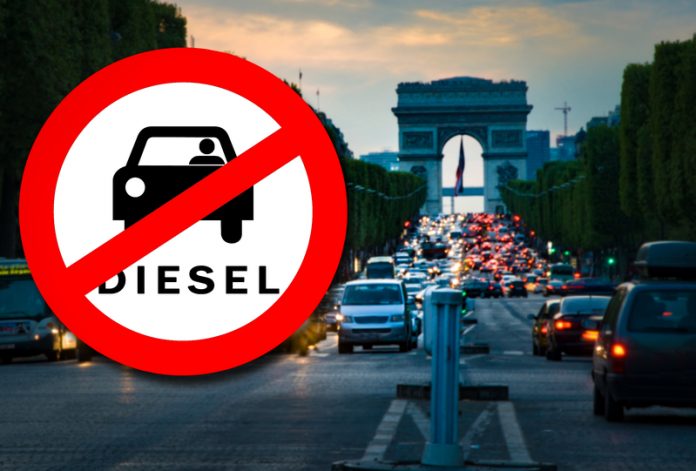EPHA, EUROCITIES and T&E urge the European Commission and national governments to make tackling air pollution from dirty diesel vehicles a political priority for Europe
The European Diesel Summit, held in Brussels, highlighted solutions that already exist to put the dangerous legacy of the ‘Dieselgate’ scandal to an end. Cities have led the way, through measures such as low emission zones, to protect people’s health and our environment. However, city-level action alone is not enough to ensure clean air for all citizens. Too little has been done at national and European level to tackle the fleet of more than 43 million grossly-polluting diesel cars and vans currently on Europe’s roads.
A declaration supported by the three organisations and presented to EU Commissioner Elżbieta Bieńkowska urged member states and the EU to take five specific actions without delay:
- Clean up the 43 million existing dirty diesel vehicles across all member states as a political priority for Europe, and support cleaner new vehicles
- Coordinate the recall and fixing of vehicles at the European level; prevent the sale and use of polluting cars that have not been fixed and export from west to east
- Ensure all fixed vehicles undergo independent real-world testing to verify emissions performance
- Create an ‘EU Clean Air Fund’ and ensure that industry contributes significantly
- Strengthen European level legislation on vehicle emissions and testing frameworks; incentivise the modal shift and invest in infrastructure at national level
Anna Lisa Boni, secretary general, EUROCITIES said: “Three years on from the Dieselgate scandal, the number of polluting cars on our roads continues to rise, putting lives at risk. As cities we are committed to delivering clean air for our citizens. We will continue to implement low emission zones and restrict vehicles where necessary to promote public health and protect the environment. We also encourage alternatives, such as public transport, walking and cycling. But for a stronger impact, we need greater action at EU level to clean up dirty diesels and promote sustainable urban mobility.”
Sascha Marschang, acting director, European Public Health Alliance (EPHA) commented: “Today, evidence is clear that diesel exhaust causes costly chronic conditions and ultimately premature deaths, especially among disadvantaged citizens. The burden in terms of lives lost is incalculable, but healthcare costs can and must be estimated. Making the invisible visible and calculating the actual healthcare savings would make it easier for decisionmakers to implement the necessary policy measures to ensure cleaner air and a healthier life. EPHA will continue to take action and demand that the health of all in Europe is prioritised.”
William Todts, executive director, Transport and Environment, said: “All Europeans have the right to breathe clean air, but presently only 2% do, while more than 400,000 die prematurely every year as a result. The 43 million dirty diesels driving around our cities are a major cause of the problem. Three years after Dieselgate there still is no European solution. We’ve got a piecemeal approach where dirty diesels are not being fixed but are increasingly exported east. We need a European solution based on the principle that dirty diesels must be either fixed or scrapped.”











